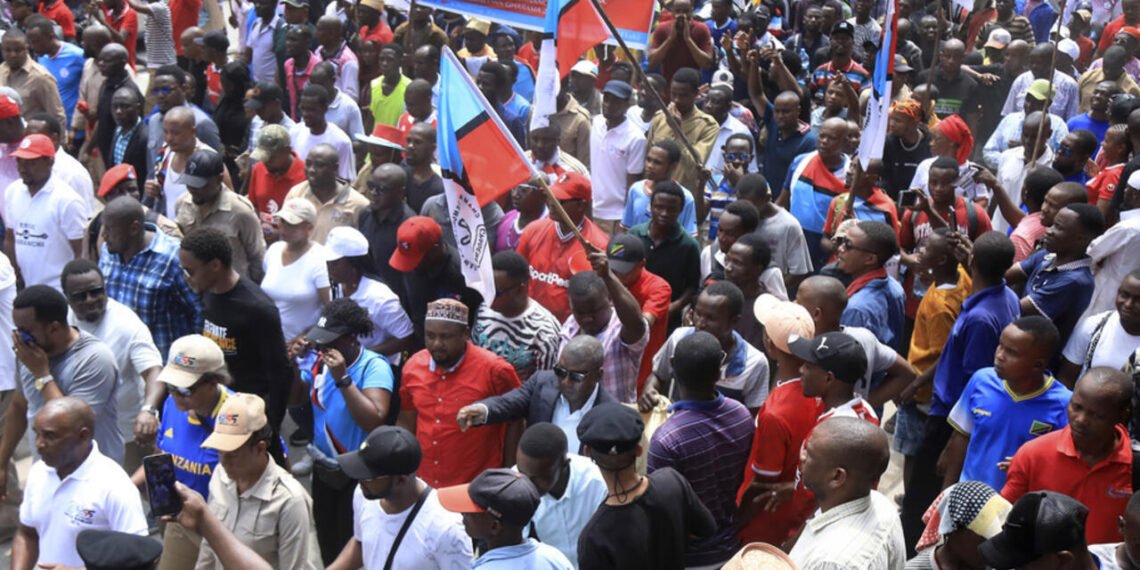Tanzania’s general election descended into chaos on Wednesday as Gen Z protesters flooded the streets, confronting heavily armed police amid accusations that President Samia Suluhu Hassan’s administration staged a “sham election.” With opposition figures jailed, disqualified, or silenced, young voters turned polling stations into battlegrounds, toppling tents, burning ballot boxes, and chanting anti-government slogans in scenes that shook the nation’s political order.
Key Highlights:
- Polling stations across Dar es Salaam and Mbeya turned violent as youth-led protests erupted.
- Major opposition leaders, including Tundu Lissu and John Heche, remain detained or barred from contesting.
- Amnesty International, HRW, and AU observers report intimidation, abductions, and internet blackouts.
- TikTok and WhatsApp fuel “Gen Z Uprising” calling for an end to CCM’s decades-long dominance.
- “SamiaMustGo” trends globally as youth vow to resist election results.
As polls opened at 7 a.m., armored vehicles and riot police surrounded voting centers in Dar es Salaam, while turnout in urban areas dropped sharply. President Suluhu, Africa’s only sitting female head of state, is widely expected to secure a second term under what observers describe as a heavily restricted political environment.
The opposition’s absence cast a dark shadow over the vote. CHADEMA’s Tundu Lissu, long seen as the only credible challenger, was detained on treason charges after leading reform protests. Although later acquitted, he refused to participate in the election, declaring it “a ritual of oppression.” Vice Chair John Heche was arrested near the Kenya border, while ACT-Wazalendo’s candidate, Luhaga Mpina, was twice disqualified by the electoral commission.
Amnesty International described the pre-election atmosphere as a “climate of fear,” documenting abductions, torture, and disappearances of activists. Internet access was throttled, protests banned, and security forces deployed nationwide.
Read Also:
- Tanzania bans Nigerians, other foreigners from 15 key business sectors
- Tinubu to attend Africa energy summit in Tanzania
- Zambia, Tanzania, Cameroun have highest Tobacco industry interference in Africa, says report
Eyewitness clips circulating online show young men and women dragging ballot boxes onto the streets, shouting, “Police, stop the madness! You’re beating us for one woman?” In Mbeya, some soldiers were reportedly seen standing aside as protesters marched beside military vehicles, signaling fractures within state security.
By afternoon, Dar es Salaam’s major roads were deserted. Shops shuttered, smoke filled the air, and helicopters circled above. The African Union and SADC observers described the situation as “tense but ongoing,” while Human Rights Watch branded it “Tanzania’s darkest election.”
Analysts say Suluhu’s expected victory will likely deepen divisions and ignite a generational shift across East Africa. Online, the slogan “Wingi wetu ndiyo ukombozi” — “Our numbers are our liberation” — has become the rallying cry of Tanzania’s youth-led resistance.
As global attention turns to Dar es Salaam, one thing is clear: even if the streets fall silent after the vote, a new political fire has been lit and its embers may soon spread beyond Tanzania’s borders.






